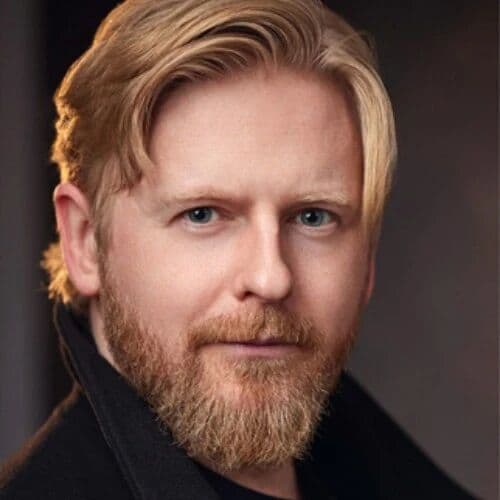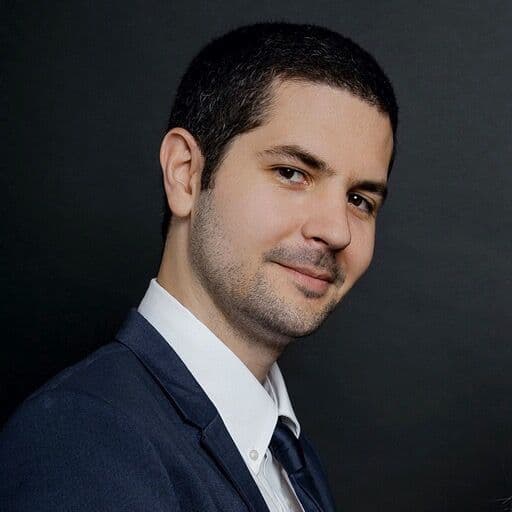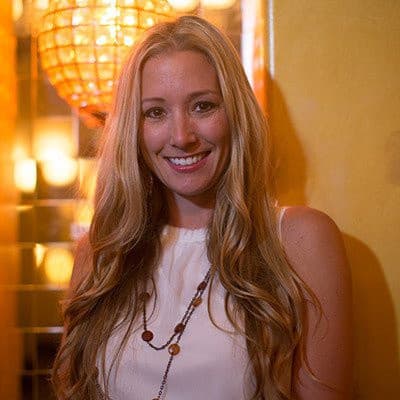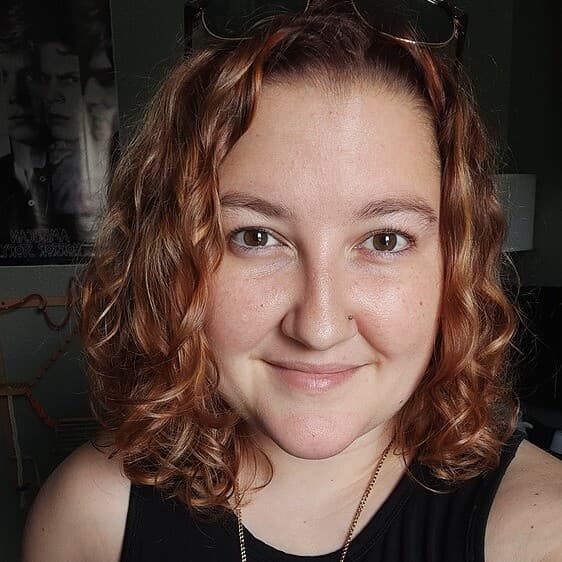The Importance Of Creating Your Own Work

"You're not good looking enough to be a lead actor. You're not ugly enough to be a character actor. You're an average looking guy in his 30’s. Maybe start thinking about what to do after acting"
This is what a former agent, the man who was meant to be representing and guiding my career, said to me when I asked to meet and discuss why I hadn't been called in for any auditions for the best part of a year, and how we could work together to fix it. Despite attending acting, accent, and stage combat classes, casting workshops, updating headshots, reels, and reaching out to casting directors and producers regularly – all the things we’re told as actors to do – that was all the wisdom he would offer me.
So, with those words ringing in my ears, I left the meeting furious, went my separate way from the agent, and determined to do something about it. I read about the British actor and filmmaker Stuart Brennan, who, facing similar challenges, wrote and produced his own films, one of which went on to win him a BAFTA for Best Actor. Inspired by this and the classic Sylvester Stallone ‘Rocky’ story, I decided to take matters into my own hands and create my own work.
I was determined that my former agent's words would not be the final stop in my acting career. On the contrary, this was where things would really begin.
I had no script, no budget, no connections, no team, and no clue where to start.

WRITE WHAT YOU KNOW
What I did have was a wealth of anger and frustration at the experience of living in London in poverty, working multiple minimum-wage jobs to survive, and chase my dream.
I decided to write a short showreel scene, around one minute runtime, incorporating my own thoughts, feelings, and experiences. Two guys, on the sofa in their grotty apartment, angrily complaining about their awful work day and the events that happened. Then a cutaway scene, in their minds, to them exacting violent, bloody retribution on their micromanaging work supervisors.
A simple premise and a technically easy scene - an establishing wide shot, a few mid and close ups of both actors, heavily dialogue and reaction focused - great for showreel material.
It took around two hours to write. Then the scenes kept coming. More ideas. More dialogue. More real-life scenarios - including the time I was electrocuted in a bar I was working in. More insane revenge scenes. A one minute showreel scene quickly grew into a five minute short, which built to fifteen minutes, which ultimately evolved into FRIED - a four-part indie series; a nihilistic, psychological thriller with dark comedic elements, which went on to win 38 festival awards worldwide, garnering critical acclaim, particularly for it’s acting, realistic dialogue and social commentary, over 60K views and helped me book the biggest movie roles of my career so far.
Working additional evenings and weekend shifts at bars and events for nearly a year, I saved up a budget of £2,500 (don’t laugh – I've been on sets where this wouldn’t even cover the coffee costs!) and assembled a talented cast and crew. I ripped all of the furniture out of the bedroom I was renting and converted it into a set, sleeping on the floor each night.

Then the pandemic began. Shoot dates cancelled, lockdowns, crew members unavailable. What was meant to take up to a month eventually stretched to over a year and a half. However, I knew in my mind what the series was capable of, what it could achieve, and what I wanted to show the world I could do as an actor and filmmaker.
I never gave up or compromised my vision.
I used four locations in total; three of which were in the horrendous, run-down apartment I was renting, the fourth was provided through a wonderful animal charity in exchange for a donation. I couldn’t afford CGI, effects, or spectacle, so I focused heavily on what I believe is the most important thing for a film - dialogue and characters. It was edited on a laptop, using DaVinci Resolve (brilliant software which I encourage people to use – they have a comprehensive free version and a paid studio version).
I cut the trailers myself, after spending hours watching trailers from Warner Brothers, Netflix, Prime, Paramount, studying what format they follow and what made them engaging and exciting.
All of the promotional material, including the electronic press kit, was created on a 20+ year old version of Photoshop that I still use from my brief college days.

RESULT
From the success of FRIED, I booked several movie roles, including WARLORD, which went to Apple TV+, starring opposite Billy Boyd (Lord of the Rings), Ryan Gage (The Hobbit) and Jennifer English (Baldur’s Gate), directed by the BAFTA-winner Stuart Brennan who had originally inspired me, and even getting to work with Stanley Kubrick’s cinematographer, the Emmy-nominated Doug Milsome, as well as recently wrapping filming in Europe on the US thriller MURDER IN PARADISE with New York director Richard Switzer. I signed with a fantastic agent who works incredibly hard, has my back, and fully believes in me. I was invited to be a judge at the International Film Festival of Wales (my home country) at the Odeon Cinema. I was interviewed by Europe’s e-Talenta, the UK’s Actors Pro Expo, and built connections at Sony HQ in the iconic Pinewood Studios.
All of this came about as a direct result of writing a one-minute showreel scene.

MAKE YOUR OWN INDUSTRY
I've since had actors reaching out to me for advice, after seeing my series at a festival or watching my interviews, and I always implore them - make your own work. Whether it's a sixty-second showreel scene, a monologue, a short film, a feature movie, whatever it is, give it a try and get started on it. It's never been easier to create something.
You no longer need millions and millions of pounds (dollars for our US readers!) or permission from any studio to create YOUR script and YOUR movie. Mobile phone technology has evolved so much that you can shoot entire feature films on them now. My next two productions, which I'm currently writing, are full-feature movies and will be shot on an iPhone. Watch the behind the scenes videos of Danny Boyle's 28 Years Later for inspiration and ideas. YouTube has an almost infinite amount of tutorial videos on how to edit, how to colour grade, sound design, ADR, everything.
Blackmagic even have a free mobile app which essentially turns your phone into a professional camera with controls for frame rate, shutter angle, white balance, etc. Stage32 has wonderful resources, articles, and information from a range of industry professionals, as well as a lively and engaging lounge/discussion board. You simply never know where your film will be seen and by whom. Vin Diesel created his own short film, which was spotted by Steven Spielberg, who then cast him in Saving Private Ryan. Sylvester Stallone’s Rocky story needs no introduction, although I would recommend checking out Tony Robbins’ recount of it which is hugely inspirational. Whiplash started as a short film, and after impressing so many at film festivals, was financed and adapted into a full feature, winning 3 Oscars.
Whether you don’t believe you have the writing ability, don’t think you have the connections, or are simply procrastinating, I would say – nonsense, everyone has a story to tell. Get over it, get out there, and go for it!
In the words of the legendary Martin Scorsese, “make your own industry”.

PRACTICAL TIPS
SCRIPT
Above all else, this is where your film lives or dies. Ultimately, if the story and dialogue aren’t good enough, no one will watch it. Read as many scripts as you can get your hands on. Read the Oscar winners, study them, and figure out what works. The act structures. Why is the dialogue so good? Why do you relate to that character? What makes this bit so thrilling and exciting? Why does that scene make you cry? A fantastic resource I use is Script Slug, which has hundreds of freely available scripts to download and read, including those by Christopher Nolan, Quentin Tarantino, and Robert Eggers.
Don’t just show family and friends. Get together with professional actors and run a live read-through; you’ll be surprised at how different certain scenes can sound, and adjustments can then be made to pacing or certain bits of dialogue.
LOCATIONS
Keep these as minimal as possible, ideally free, and somewhere indoors with an environment that you control. Hiring locations can quickly become incredibly expensive, with tight time restraints which adds a lot of pressure onto your daily schedule. If you’re going to film outdoors, I recommend recording an additional wild track of all dialogue at a separate indoor location, or plan for ADR sessions, just in case of background noise interfering.

PRESS & PROMOTION
Plan an extensive press campaign, beginning with the first step – an electronic press kit. This should include a synopsis of the story, background information on the filming, biographies of cast/crew, stills from the finished production and behind the scenes photos (try to get a photographer or even a friend to take photos during production), social media handles, and contact information. Be sure to update your EPK with reviews and awards as and when. Canva is a free and easy-to-use resource for creating your EPK.
Contact movie websites, bloggers, and local newspapers to build buzz around your project. If the film deals with specific themes, see if there are any local charities who would be willing to become involved to help raise awareness of the social issues through your story.
SOCIAL MEDIA
It’s vital to use social media to your advantage to build a following for your film. Register the handles, post interesting content, behind-the-scenes photos, videos of cast and crew talking, any funny outtakes, and try to collaborate with others.
Let's hear your thoughts in the comments below!
Got an idea for a post? Or have you collaborated with Stage 32 members to create a project? We'd love to hear about it. Email Ashley at blog@stage32.com and let's get your post published!
Please help support your fellow Stage 32ers by sharing this on social. Check out the social media buttons at the top to share on Instagram @stage32 , Twitter @stage32 , Facebook @stage32 , and LinkedIn @stage-32 .
About the Author

Richard Goss
Actor, Screenwriter, Director, Producer





